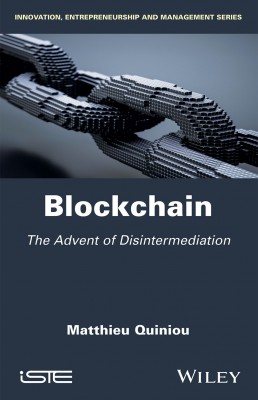
The dominance of trusted intermediaries could be weakened by blockchain, a distributed ledger technology, one of the functions of which is to constitute timestamped proofs by replacing inter-individual trust with algorithmic trust.
Blockchain self-executing smart contracts allow us to rethink the practice in the domain of e-commerce, interbank communication, fundraising (and ICOs), justice (timestamping evidence, acts authenticated by blockchain) and businesses in numerous sectors (entertainment, AI, health, real estate, tourism, transport, etc.) which attempt to propose new services by benefiting from blockchains.
This book aims to put into perspective the technical innovations and the uses brought about by blockchain, by identifying that which has a medium- or long-term impact, all while taking into account the social, economic, judicial and administrative resistances that are likely to develop.
Part 1. The Blockchain: a Tool for Non-centralization and Disintermediation
1. Non-centralized Architecture.
2. The Dynamics of Disintermediation.
3. Blockchain Prospects and Ongoing Improvements.
Part 2. Blockchain Technology for a New Socio-economic Paradigm
4. Toward a Social Smart-contract?
5. Proteiform and Multi-sectoral Transformations.
Matthieu Quiniou is a Doctor of Private Law and Attorney at Law at the Paris Bar, France. His main interests include digital innovation law, blockchain, data and AI.